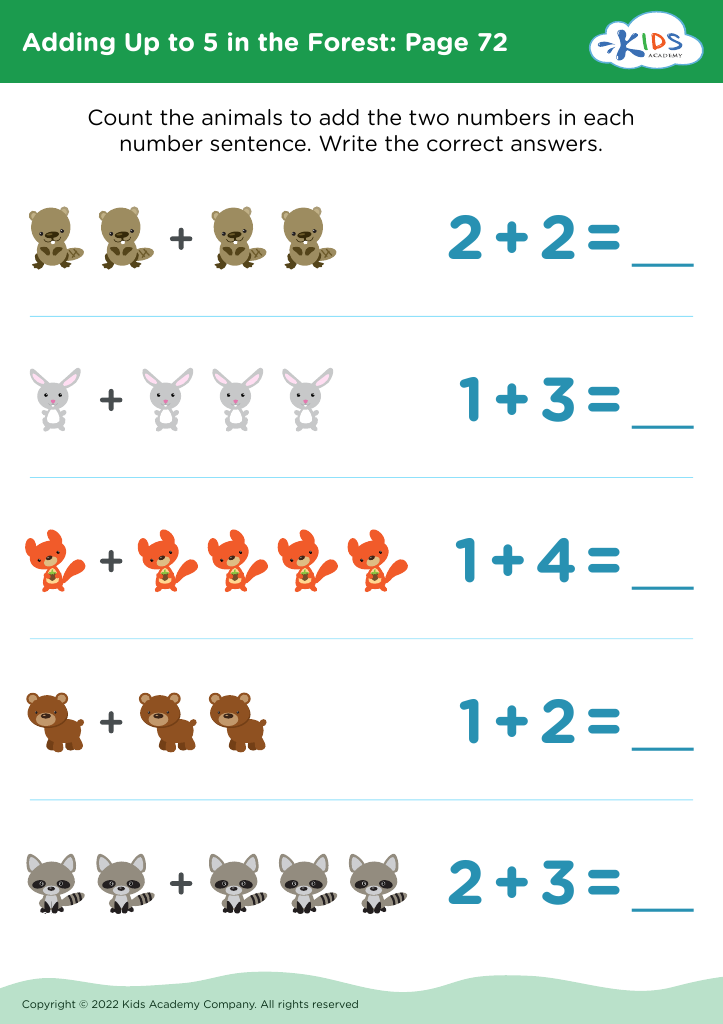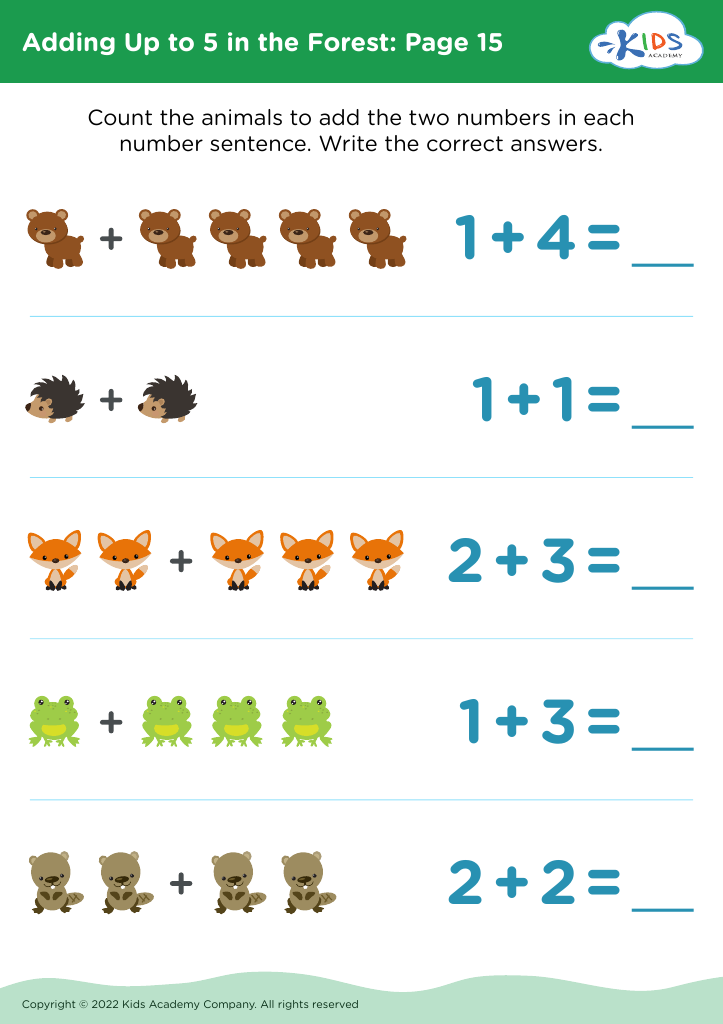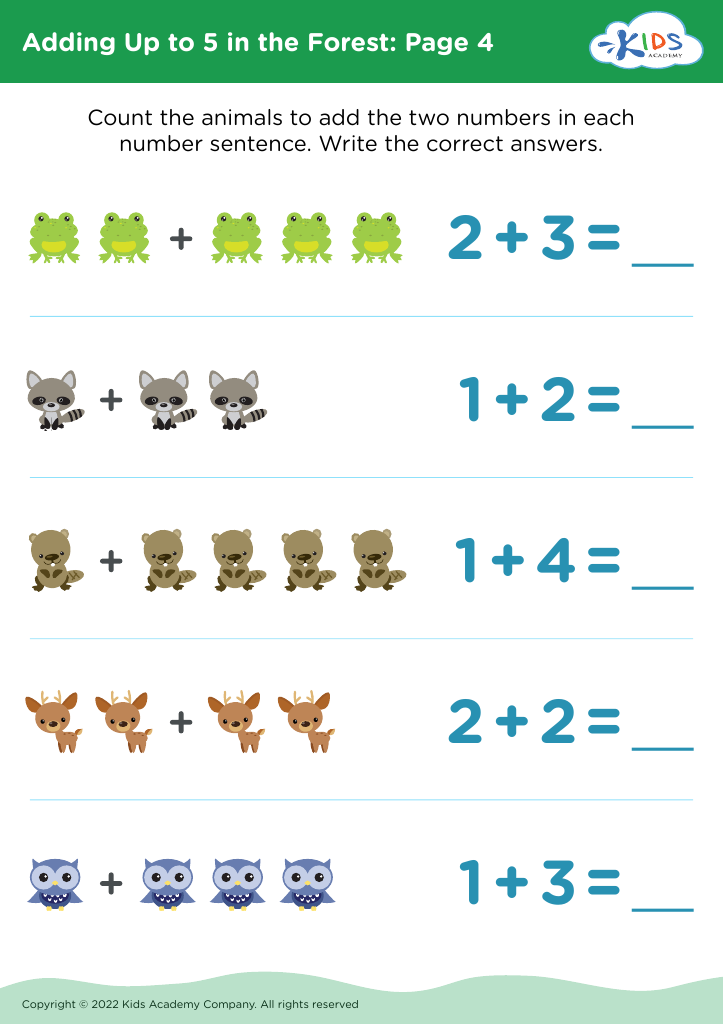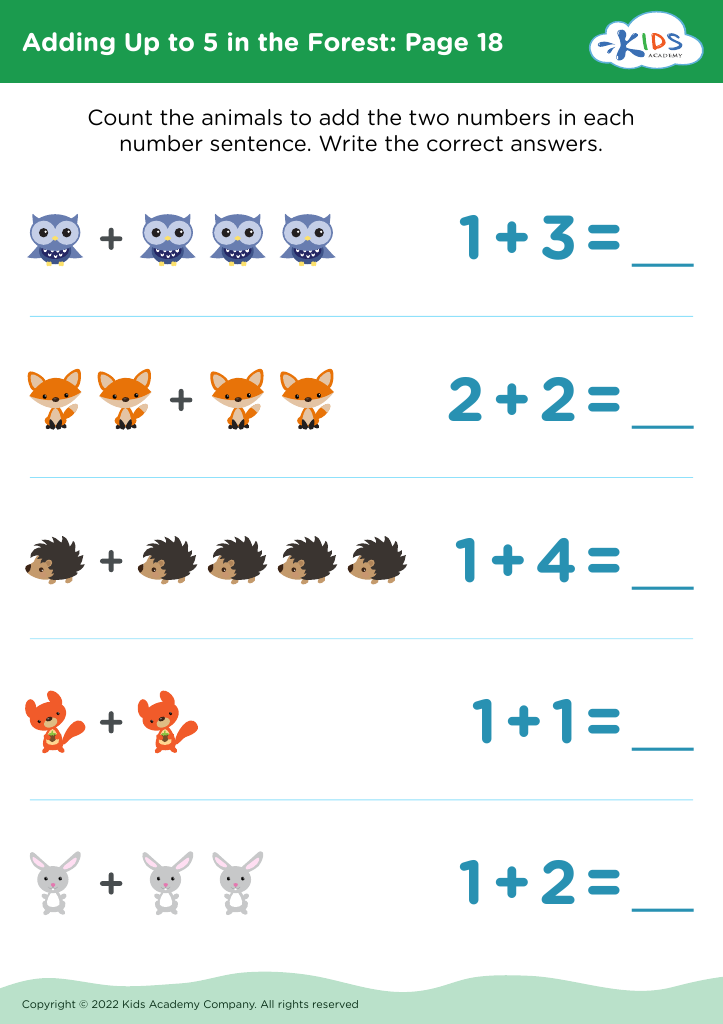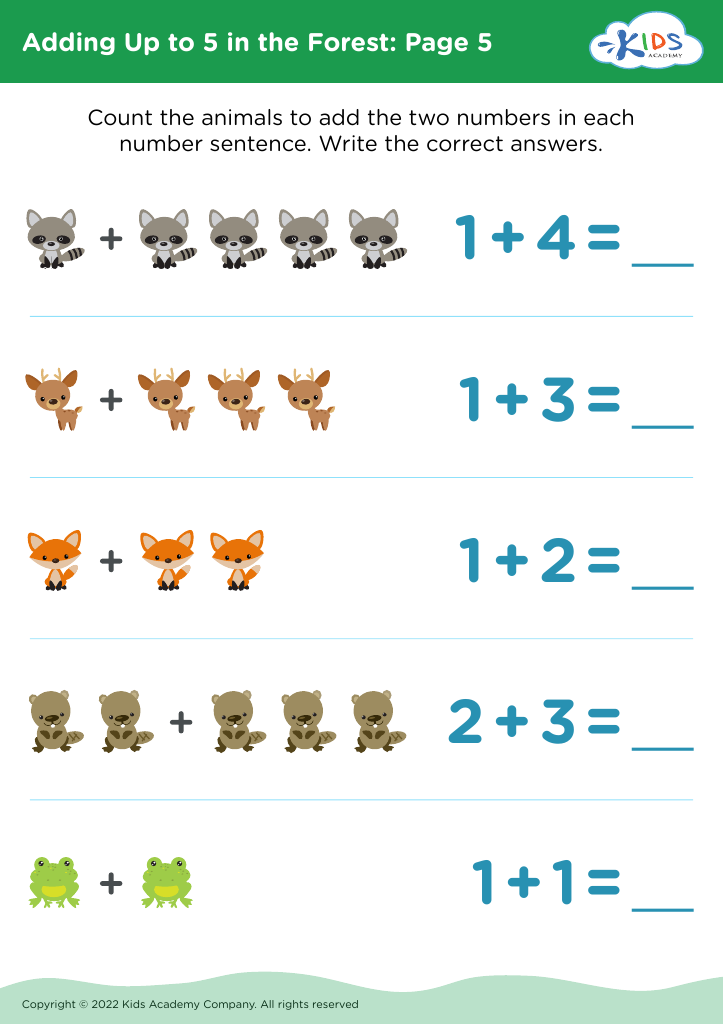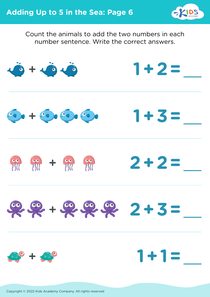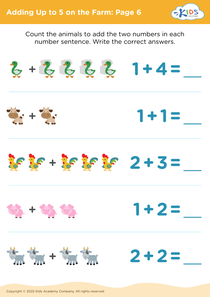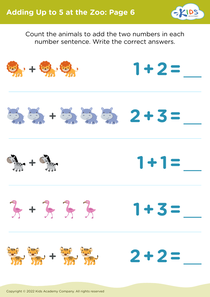Basic Arithmetic Adding in the Forest Worksheets for Ages 3-8
5 filtered results
-
From - To
Discover the joy of learning with our "Basic Arithmetic Adding in the Forest Worksheets" designed for children ages 3-8. These engaging worksheets combine the beauty of nature with foundational math skills, making addition fun and interactive. Ideal for early learners, they introduce basic arithmetic concepts through colorful forest-themed illustrations and relatable examples. Kids will enjoy counting cute animals, vibrant trees, and other forest elements while developing critical thinking skills. Perfect for homeschoolers or in-class activities, these worksheets help build confidence in math for young learners. Explore our collection and spark a love for learning with every page!
Basic Arithmetic, especially adding, is a fundamental skill that forms the foundation for all future math learning. For children aged 3-8, the early introduction of these concepts in engaging settings such as “Adding in the Forest” not only helps them understand numbers but also fosters a love for learning.
Involvement of nature enhances the educational experience by contextualizing math in everyday life. For instance, counting leaves, acorns, or animals helps children practice addition in a visual and tactile manner, making abstract concepts more concrete and relatable.
Additionally, outdoor learning encourages physical movement and kinesthetic activities, thereby improving focus and retention. By merging play with education, children are more likely to develop a positive attitude towards math, reducing anxiety often associated with this subject as they grow older.
Moreover, involving parents in outdoor arithmetic activities promotes bonding and creates a supportive learning environment at home. Overall, by encouraging basic arithmetic skills in fun, interaction-rich settings, we equip young learners with essential tools for academic success and cognitive development, while simultaneously instilling a lifelong appreciation for nature and learning.
